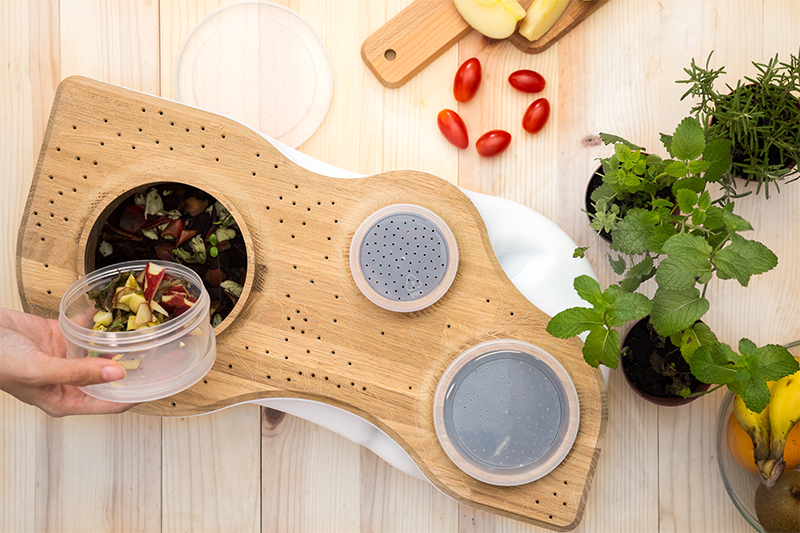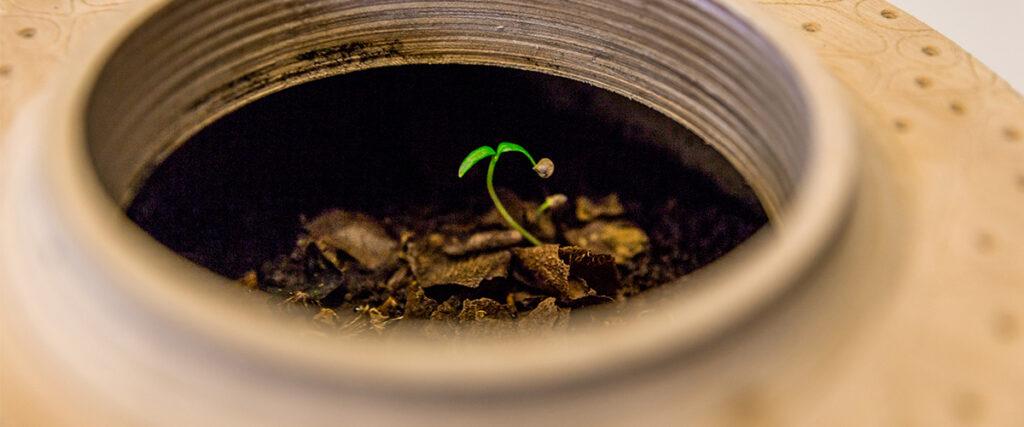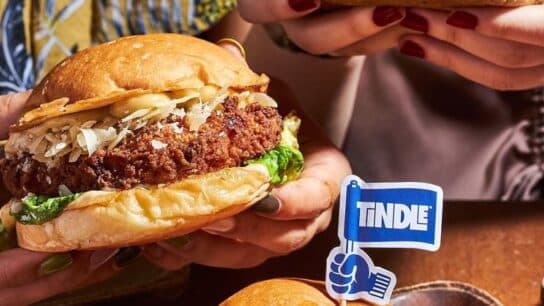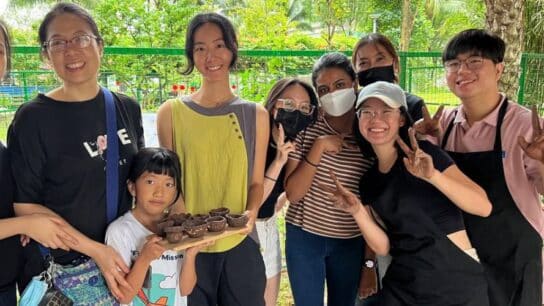Meet Brooklyn Chao, founder of Bionicraft, the Taiwanese company that is cutting down on food wastage one invention at a time, in order to secure a greener future for the world.
Born and raised in Taipei, Brooklyn Chao is a man on a mission to give nature the power to deal with its own trash. Having earned his stripes at Miniwiz, an internationally renowned Taiwanese company dedicated to upcycling consumer waste, Brooklyn identified what he saw as a bigger problem in the huge amount of organic waste generated in restaurants and kitchens around the world. And so, in 2016, he set up Bionicraft, his design studio and research company primarily focused on finding innovative and eco-integrated ways to upcycle food waste.

“We believe in geotech, that nature has a way of dealing with its problems,” he explains. “At Bionicraft, we don’t design machines, but instead solve the problems that have been made by machines. We believe that you have to look at nature to see how to deal with the issue. It might not be very efficient, but it’s always the better way.” With one award-winning product already under their belt, a successful start on Kickstarter and several more prototypes in production, this is certainly a company to watch.

Brooklyn’s main inspiration for Bionicraft came from his work at Miniwiz, where he witnessed the cycle of the manufacturing process followed by the garbage disposal. There, he came to the realisation that this was actually an incredibly important step in the cycle. “So I looked into incinerators and landfills to see how we deal with trash, and I found that there’s a lot of organic trash, not just metal or wood. Most matters made from raw materials or plastic can be recycled, and this is what Miniwiz is doing. They recycle plastics, metal, and they build something out of it. But organic waste cannot be recycled.” And here he found his mission. “Almost one-third of the waste is organic, so what could I do to somehow solve the problem?” Gathering friends and classmates to his cause, Brooklyn soon assembled a cross-disciplinary team ranging from biologists to landscape architects to product designers, all of whom set about the task in hand at Bionicraft.

The first result of their efforts was Biovessel, a tabletop ecosystem that uses earthworms to transform food waste into fertile soil, which can then be reused on plants etc. Sensitively designed and with the objective of optimising the result, the vessel was moulded into its eerie shape. Constructed based on an algorithm Brooklyn and his team developed after 150,000 hours of observation of warm activities, it guarantees a favourable condition for decomposition. Funded via Kickstarter, the stylish, organic shaped structure can process up to 3Kg of food a week.
Having raised over US$60,000, double their goal, the company have so far sold over 1000 of these tabletop composters, helping to deal with the over 70 tonnes of food wastage around the world. Last year, Biovessel even brought the company to the finalist round in Fast Company’s 2017’s World Changing Ideas Awards. That said, the whole process didn’t run smoothly from beginning to end, with Brooklyn encountering production issues along the way. “The biovessel is very tricky because the form is unique, so it is super difficult to make,” he explains. “However, we are very lucky that there are many manufacturers in Taiwan that were willing to help us. We had a delay in shipping of three or four months.”

Since Biovessel’s launch, the company has been working on new products. Alphapot is their latest creation, a simple yet brilliant concept: a plant pot made entirely from food waste. Brooklyn elaborates: “So we collect the raw food waste, the food waste from cooking, or from the market, then we grind it, dry it and send it to our manufacturer. They then combine that waste into their own kind of powder made from bamboo, mix them together, and then we use a heat press to make our product.” Next in the pipeline is a research collaboration with Audi that they hope will lead to a mobile purifier system, a concept in development which aims to transform vehicles’ toxic emissions into the clean air using biofilm and biotechnology. And the company has a patent pending on Bio E – a novel technology that utilises the chemical reaction in the decomposing process to generate electricity.
Ever on the search for the organic solution, Brooklyn remains firm that the easiest thing consumers can actually do is simply to be more conscious – order less food, create less waste. And, in the meantime, he is determined to continue on his quest to find natural solutions. As he sums up Bionicraft’s mission with a famous quote from Lao, “Nature does not hurry, yet everything is accomplished.”
Related Articles
K11 Musea: Is This USD 2.6 Billion Sustainability Mall Worth the Hype?
Meet the Thai Engineer Who Upcycled 100,000 Flip Flops from Ocean Debris




